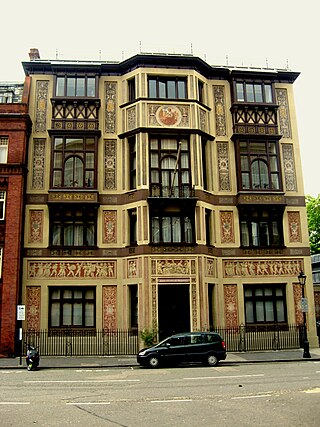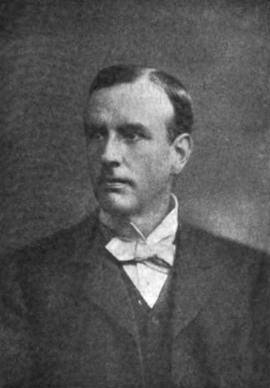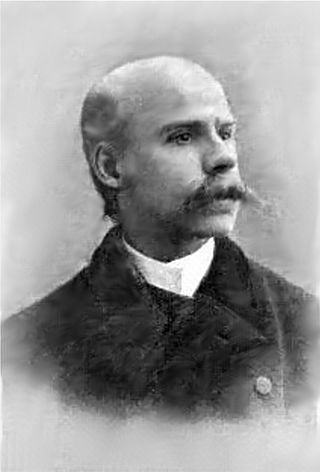Related Research Articles
William Southcombe Lloyd Webber was an English organist and composer, who achieved some fame as a part of the modern classical music movement whilst commercially facing mixed opportunities. Besides his long and prestigious career, composing works ranging from choral pieces to instrumental items and more, he is known for being the father of both fellow composer Andrew Lloyd Webber and virtuoso cellist Julian Lloyd Webber. He also notably served as a teacher, instructing pupils on music theory at the Royal College of Music for many years until his death in 1982.

William Crotch was an English composer and organist. According to the British musicologist Nicholas Temperley, Crotch was "a child prodigy without parallel in the history of music", and was certainly the most distinguished English musician in his day.

Samuel Sebastian Wesley was an English organist and composer. Wesley married Mary Anne Merewether and had 6 children. He is often referred to as S.S. Wesley to avoid confusion with his father Samuel Wesley.

Samuel Wesley was an English organist and composer in the late Georgian period. Wesley was a contemporary of Mozart (1756–1791) and was called by some "the English Mozart".

Henry Thomas Smart was an English organist and composer.
Sir Edward Cuthbert Bairstow was an English organist and composer in the Anglican church music tradition.

The Royal College of Organists (RCO) is a charity and membership organisation based in the United Kingdom, with members worldwide. Its role is to promote and advance organ playing and choral music, and it offers music education, training and development, and professional support for organists and choral directors.
John Travers was an English composer who held the office of Organist to the Chapel Royal from 1737 to 1758. Before filling several parochial posts in London he had been a choir boy at St. George's Chapel, Windsor, and a pupil of Johann Christoph Pepusch.

Sir John Frederick Bridge was an English organist, composer, teacher and writer.

Alan Gray was an English organist and composer.

Leeds Minster, also known as the Minster and Parish Church of Saint Peter-at-Leeds is the minster church of Leeds, West Yorkshire, England. It stands on the site of the oldest church in the city and is of architectural and liturgical significance. A church is recorded on the site as early as the 7th century, although the present structure is a Gothic Revival one, designed by Robert Dennis Chantrell and completed in 1841. It is dedicated to Saint Peter and was the Parish Church of Leeds before receiving the honorific title of "Minster" in 2012. It has been designated a Grade I listed building by Historic England.

Philip Hayes was an English composer, organist, singer and conductor.
The Choir of Leeds Minster is the choir of Leeds Minster, Leeds, England, which became a Minster in September 2012. The choir was founded by vicar, Richard Fawcett probably as early as 1815, and was certainly in existence by 1818. The church's choir - boys and men - was, from its origins, a charge on the church rate; and, in what was then a largely non-conformist town, a none-too-popular one. By the 1830s, the choir's resourcing had been taken over by a list of voluntary subscribers. On arrival as Vicar of Leeds in 1837, Walter Farquhar Hook said he found "the surplices in rags and the books in tatters". Additional to its extensive commitment in the provision of choral services, the choir is known to a wide public through many recitals, recordings and broadcasts and by its regular choir tours - the first tour was held in July 1968 and the 40th anniversary tour, from 22 to 27 July 2008, included singing in Ely Cathedral, King's College, Cambridge, the National Musicians' Church St Sepulchre-without-Newgate in the City of London, All Saints Pastoral Centre London Colney and the Chapel of the Royal Hospital Chelsea.

Alfred Melville Cook was a British organist, conductor, composer and teacher.

John Naylor was a composer and organist of York Minster from 1883- 1897.

Charles Swinnerton Heap was an English organist, pianist, composer and conductor.

Sir Robert Prescott Stewart was an Irish composer, organist, conductor, and teacher – one of the most influential (classical) musicians in 19th-century Ireland.
George Benjamin Arnold (1832–1902) was an English organist and musical composer.
George Frederick Perry was a British violinist and organist, and composer of operas and oratorios. He was musical director of the Haymarket Theatre, and later was leader of the orchestra of the Sacred Harmonic Society.
References
- 1 2 3 Graham, Barber (2003). "Jerusalem on High CDA67". Hyperion Records.
- 1 2 3 4 Westrop, Stephen (1998). "Jerusalem the Golden". Hyperion Records.
- ↑ "Discovering Leeds - Leeds Classical Music". www.leodis.org. Retrieved 1 April 2020.
- ↑ Spark, William (1851). Lecture on Church Music, More Particularly the Choral Service of the Church of England as Applied to Parochial Worship. R. Slocombe.
- ↑ Spark, William (2013). Musical Memories. Cambridge University Press. ISBN 978-1108062428.
- ↑ Spark, William (1892). Musical Reminiscences: Past and Present. Simpkin, Marshall, Hamilton, Kent & Company.
- 1 2 3 4 5 "Bardon Music | Organ Sheet Music | Compositions by Dr William Spark". www.bardon-music.com. Retrieved 31 March 2020.
- ↑ Sheet music in collection of Leeds Museums & Galleries
- ↑ Smither, Howard E. (1 September 2012). A History of the Oratorio: Vol. 4: The Oratorio in the Nineteenth and Twentieth Centuries. UNC Press Books. ISBN 978-0-8078-3778-8.